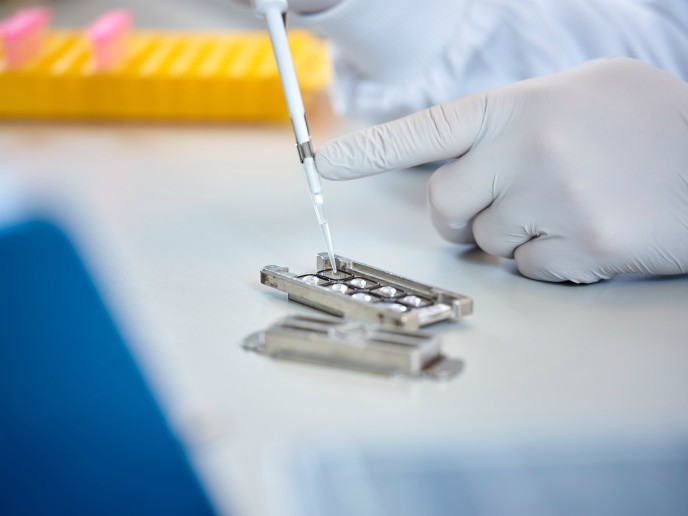Gene test forecasts breast cancer outcome
Traditionally, breast cancer treatment decisions made by physicians rely on clinical pathology such as hormone receptor status, age, tumour size, grade and lymph node involvement. Based on these, current guidelines recommend that all patients with invasive breast cancer receive adjuvant therapy after surgery. However, this approach doesn’t determine the risk of cancer recurrence with patients being over or under treated. A genetic profile associated with cancer recurrence To address this issue and improve clinical decision, the EU-funded MammaPrint project proposed to analyse the entire genome of patients and further validate a molecular signature that could be associated with cancer recurrence. “MammaPrint was developed with the rationale that the natural history of the disease is determined by the underlying regulatory gene pathways active in the tumour,″ explains project coordinator and Medical Director EU at Agendia, Dr Sari Neijenhuis. This means that gene expression profiles can be utilised alongside standard clinical pathology for prognosis and therapy response prediction. Agendia, a spin-off company of the Netherlands Cancer Institute, performed a genome-wide analysis of 25 000 genes in untreated primary breast tumour samples. They then compared the gene expression profiles of patients who did not have distant metastasis within 5 years with those who did. This allowed them to identify 70 genes that could distinguish patients at high risk of developing metastases from those whose risk of metastasis was sufficiently low and wouldn’t clinically benefit from chemotherapy. “The idea is to test all early stage breast cancer patients and accurately identify which ones will benefit from adjuvant chemotherapy,″ continues Dr Neijenhuis. The MammaPrint test essentially determines the expression profile of this 70-gene signature set and using specific algorithms predicts the risk of distant recurrence, associating it with good or poor prognosis. Validating the clinical utility of MammaPrint To assess the prognostic accuracy and predictive value of the MammaPrint test for predicting 5- and 10-year relapse-free survival, collaborators performed a retrospective analysis of postmenopausal breast cancer population from the ABCSG 8 and the STO High Risk clinical trials. In addition, PRIMe, a prospective trial in Germany, Switzerland and Austria demonstrated the importance of a precision medicine approach that integrates genomic, clinical, and pathological factors to guide patient treatment. According to Dr Neijenhuis “the results of the three studies were complementary and allowed us to assess the level of benefit of chemotherapy in MammaPrint High Risk Patients and the changes in management based on MammaPrint in a real world setting.″ The adherence to the MammaPrint test results was very high and further highlighted the support offered to patients in the decision-making process. The future of precision oncology The MammaPrint test can help thousands of women throughout Europe to safely avoid chemotherapy and its toxic side effects. Its proven clinical utility in specific European markets significantly strengthens and accelerates partner efforts to make the test available in other regions and parts of the world. MammaPrint is currently endorsed by several international and national clinical guidelines, demonstrating that genomics can help individualise treatment regimens. Importantly, it emphasises the importance of precision oncology in future clinical practice offering a more cost-effective approach to breast cancer management.
Keywords
MammaPrint, gene, breast cancer, recurrence, metastasis, chemotherapy, genome







